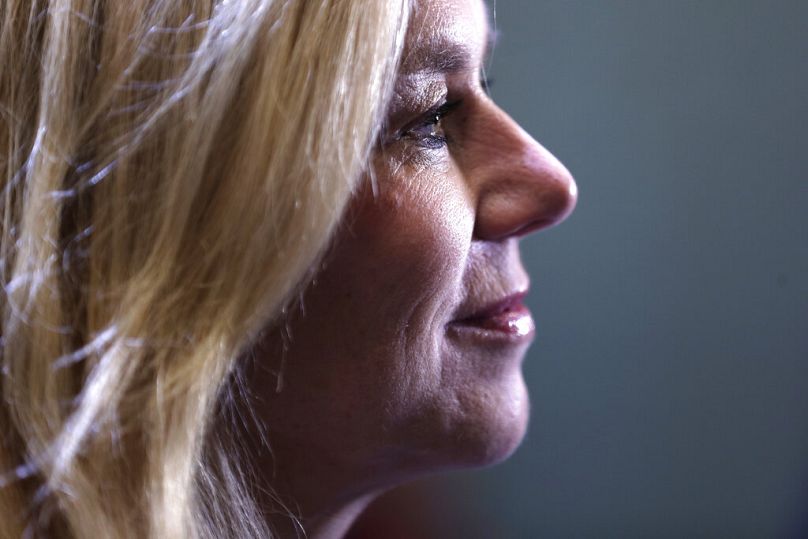A recent study found 10% of all tweets at women on Dutch electoral lists contained hateful comments or sexist threats.
With female participation in this week's election in the Netherlands breaking records, one campaign group can be excused for feeling optimistic.
Stem op een Vrouw (Vote For A Women) was set up in 2017 to achieve parity in the Dutch parliament and have as many women and men in the 150-seat parliament.
Last year, around a third of MPs in the House of Representatives were female, according to statistics from the World Bank. That's down from 42% in 2010, the highest proportion in the country for more than two decades.
There is an unprecedented 10 women leading political parties into the election. Sitting at the top of their party's electoral lists, they stand the best chance of getting into parliament.
There is also a strong showing of women generally. For instance, 60% of candidates for the Party for the Animals are female.
Overall, of all the candidates standing for election, 37% are women, according to Devika Partiman, founder of Vote for Women.
"I think this is great," Partiman told Euronews. "I am not totally satisfied yet, but of course, it is already a lot better than [in] the previous years.
"And I am happy to see that now there is so much attention for this topic of how many women are in the Dutch parliament.
"So people might think that this is actually the moment to make changes happen. That is very positive. And I am also happy that we finally get to see some more diversity on our election's lists.
"This also goes for the women that are on the current lists compared to the women that already have a seat in the parliament.
"All these women are a role-model for dutch girls and women."
But the caveat to this optimism is a recent report by the Utrecht Data School, part of the Dutch city's university.
It found that 10% of all tweets (they studied 339,932 between October 1 and February 26) aimed at women on Dutch electoral lists contained hateful comments or sexist threats.
The researchers suspect the number of hate tweets that do not directly address female politicians is even higher. For example, after a talk show on the TV show M with a panel of only female politicians, the misogynistic comments piled up online. "What are all these women doing on TV at dinner time?" read one tweet.
Sigrid Kaag, minister for foreign trade and development cooperation in the last government, arguably bears the brunt of the abuse.
She received 13,235 hate tweets over the near five-month period, 22% of all tweets directed at the politician.
"Women generally have a harder time in politics and the media," Kaag told weekly publication De Groene Amsterdammer.
"They are approached about their appearance and their family. The discernible pattern is girls and women are being told: 'Don't talk. Don't have an opinion. Don't stand up for it. Because we know how to find you'."
Partiman said the abuse was stopping women from pursuing a career in politics.
"We did research among 50 dutch girls and women that had doubts about a career in politics," she told Euronews. "They were actually interested to do so but didn’t take the final step. We wanted to know what stopped them and around 30 mentioned online hate as one of the reasons.
"We as an organisation see that online hate against female politicians is very visible and very common, so yes, of course, this scares women off.
"This is also the reason that stops women from pursuing their career plans. Often they make one appointment with us but then they give up because they just don’t want to deal with the misogyny in their local departments.
"This is also why in general the careers of a dutch female politician is usually shorter than the one of a male politician."
Joelle Canisius, a member of the youth organisation DWARS of the Groenlinks party, said such online hate and sexism deterred her from pursuing a career in politics.
"I'm also on Twitter myself, and when I see what happens there, I cringe every time. The more visible the woman is, the worse it gets."
As soon as a woman becomes an MP, hate tweets become part of everyday life, she added.
"I think that this misogyny and sexism is a learned system and that it runs deep in our society. We live in a patriarchal system."












